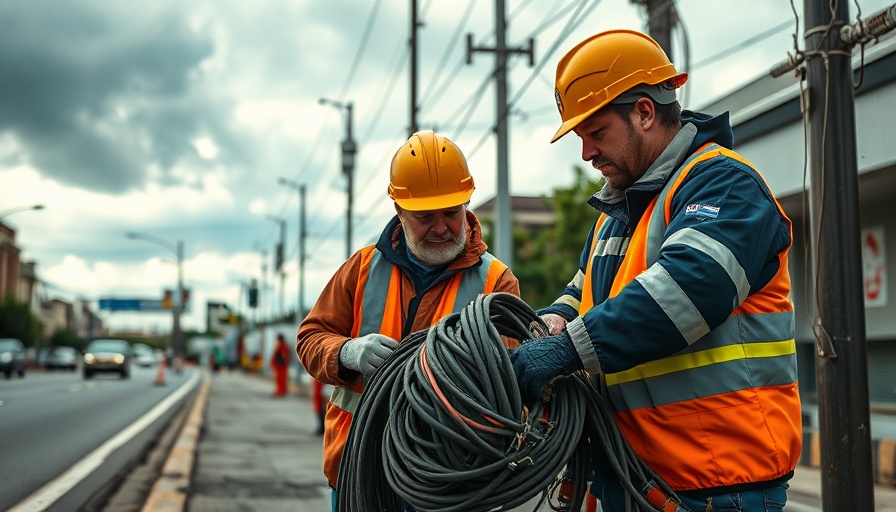
Understanding Broadband Right-of-Way Charges in Nigeria’s Growth Landscape
Nigeria stands at a pivotal moment in its digital evolution, aiming for a sizable leap in broadband penetration to 70% by 2025, while ensuring that 90% of its populace can access the internet. Yet, the journey faces numerous hurdles, with the most pressing being the varied charges across states for broadband right-of-way (RoW). This critical framework allows telecom providers to lay the essential fibre cables in public areas, but inconsistent state fees complicate nationwide internet rollout.
Inconsistencies Hampering Expansion
Currently, each of Nigeria's 36 states and the Federal Capital Territory impose different fees for RoW, which can range drastically—where some states charge as little as ₦1, while others can demand as much as ₦9,477 per metre. Such disparities not only create a patchy service landscape but also inflate costs, exacerbating the digital divide in an already underserved population.
The Role of State Policies in Internet Accessibility
For instance, Lagos State has the highest fees at ₦6,264 per metre. Despite being a thriving hotspot for internet activity with 18.8 million users, this cost is a revenue-generating strategy that may deter new investments in broadband infrastructure. Conversely, states like Edo have employed fee waivers to encourage connectivity-focused initiatives, demonstrating a proactive approach that other states could learn from to bolster their digital transformation efforts.
State Examples: Contrasting Approaches
Edo State’s progressive tech projects, such as the Edo Tech Park, showcase a valuable model aligning economic growth with a tech-savvy approach to public service. Meanwhile, Ogun State’s leading RoW charge poses significant barriers to growth, stifling telecom providers from expanding their networks efficiently. These contrasting examples underline the notion that state policies directly influence internet service quality and accessibility in Nigeria.
The Future: What Lies Ahead for Connectivity in Nigeria?
As digital transformation gains momentum in Africa, Nigeria must harmonize its RoW policies. By adopting measures that reduce costs and streamline regulations, the country can attract investments in broadband infrastructure, providing much-needed access to the remaining population. This is essential not only for individual users but for the rise of future-forward sectors like fintech and AI in Africa.
The road ahead is clear: Nigeria must tackle its broadband challenges by aligning state policies with national interests to pave the way for a digitally inclusive future. Local governments and tech entrepreneurs alike need to advocate for infrastructure that isn’t just accessible but affordable.
Take Action for a Connected Future
As we navigate Nigeria's ever-evolving tech landscape, every stakeholder has a role to play in fostering dialogue about RoW charges and digital expansion. It’s time to push for reforms that would bridge the connectivity gap. Reach out to your local representatives and highlight the need for equitable broadband access — help drive the change that Nigeria needs!
 Add Row
Add Row  Add
Add 


 Add Row
Add Row  Add
Add 

Write A Comment